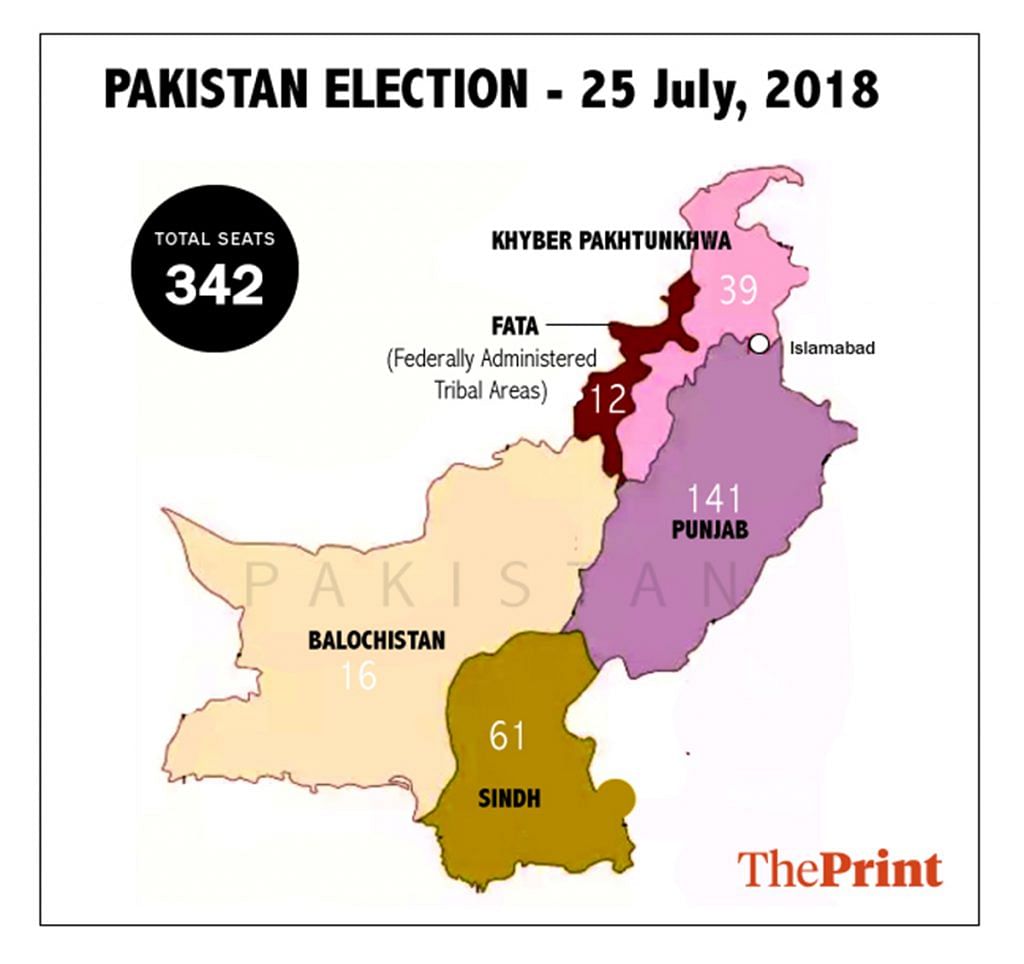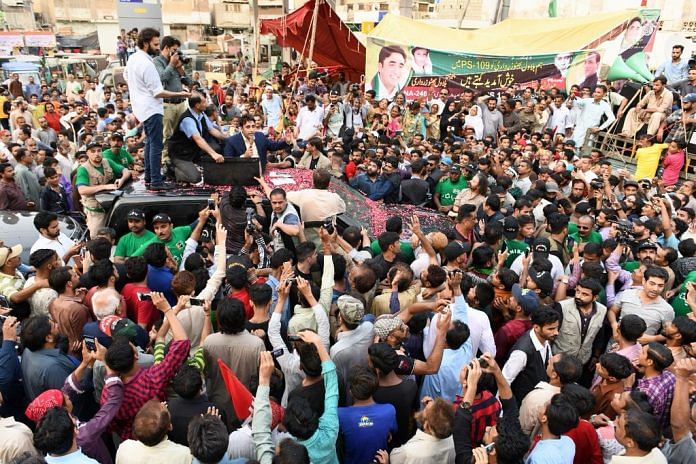Elections to the 342-member National Assembly and 4 provincial assemblies will take place simultaneously Wednesday.
New Delhi: Pakistan goes to polls on 25 July — only the second time in its history that an elected government is making way for another. For a country that has been ruled by military dictators for more than half of its nearly 71-year-long-history, this is an enormous achievement. However, no prime minister has ever completed a full five-year term in office in Pakistan.
Elections to the 342-member National Assembly, located in the capital Islamabad, and the four provincial assemblies — Punjab, Sindh, Balochistan and Khyber Pakhtunkhwa — will take place simultaneously.
With 200 million people, Pakistan is the world’s sixth largest nation. After Indonesia, it is also the world’s second largest Muslim country (India is third).

Electoral process
Pakistan’s electoral process is also significantly different from several other democracies, including India and the UK.
First, days before the vote and once the National Assembly completes its term, the polity slips into caretaker mode. The prime minister at the centre gives over to a caretaker prime minister — PML(N) leader Shahid Khaqan Abbasi handed over charge to former chief justice Nasir-ul Mulk on June 1 — while the four provinces gave way to their respective caretaker chief ministers. This is done to ensure a free and fair election.
Second, only 272 members of the 342-member National Assembly are directly elected. The remaining 70 members — 10 seats reserved for minorities and 60 seats for women — are selected based on a system of proportional representation.
To be able to form the government, a party needs to win 137 of the general seats in the assembly.
The prime minister, the leader of the opposition and the speaker must be elected from the National Assembly.
Structure
The parliament consists of the National Assembly (the lower house) and the Senate (the upper house).
The 272 directly elected seats in the National Assembly are divided among the provinces and territories — Khyber Pakhtunkhwa (KP) has 39 seats, Punjab has 141, Sindh 61, Balochistan 16, the Federally Administered Tribal Areas (which only a few weeks ago was merged with KP) 12 and Islamabad 3.
The Senate, on the other hand, has strength of 104 members, who are chosen by elected provincial legislators.
Just like in the National Assembly, the provincial assemblies too have general seats (filled by direct elections) and reserved seats (for minorities and women), which are filled by proportional representation.
The member tally of the four provinces in the provincial assembly is: Khyber Pakhtunkhwa — 124 seats, Punjab — 371, Sindh — 168 and Balochistan — 65 seats.
The Constitution of Pakistan strictly lays down the rule in Article 222-226 in Chapter 2 that no person can be a member of both houses (NA and Senate) or a house and a provincial assembly at the same time.
The prime minister, speaker and leader of opposition are elected through elections to the National Assembly. The chairman and deputy chairman are selected from the senate.
The regions of Azad Kashmir and Gilgit-Baltistan are autonomous territories and will not vote in these elections.



